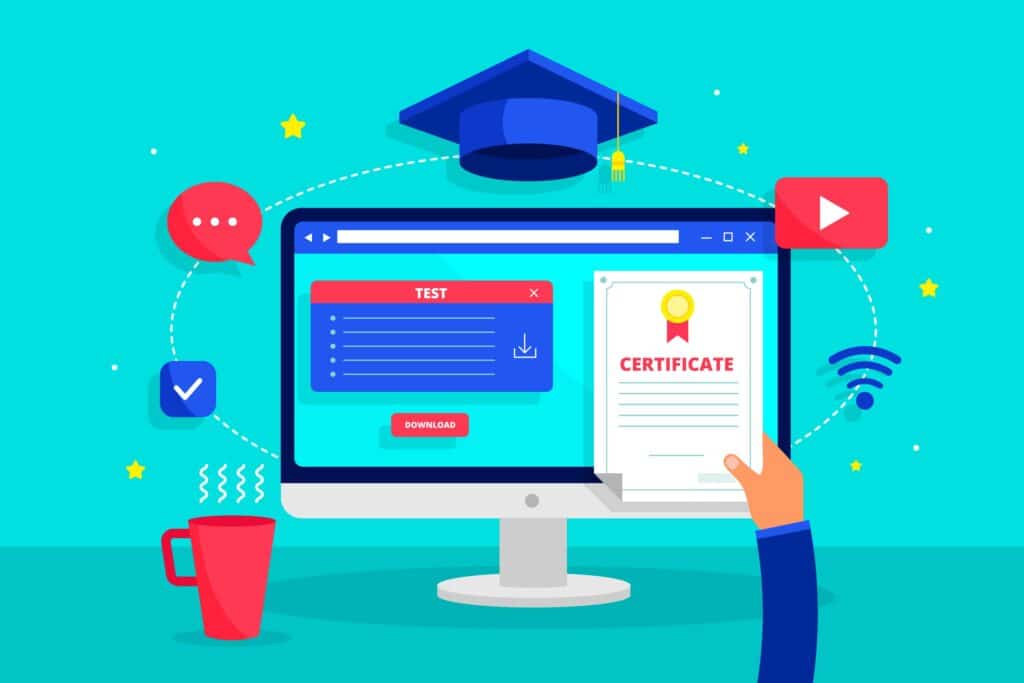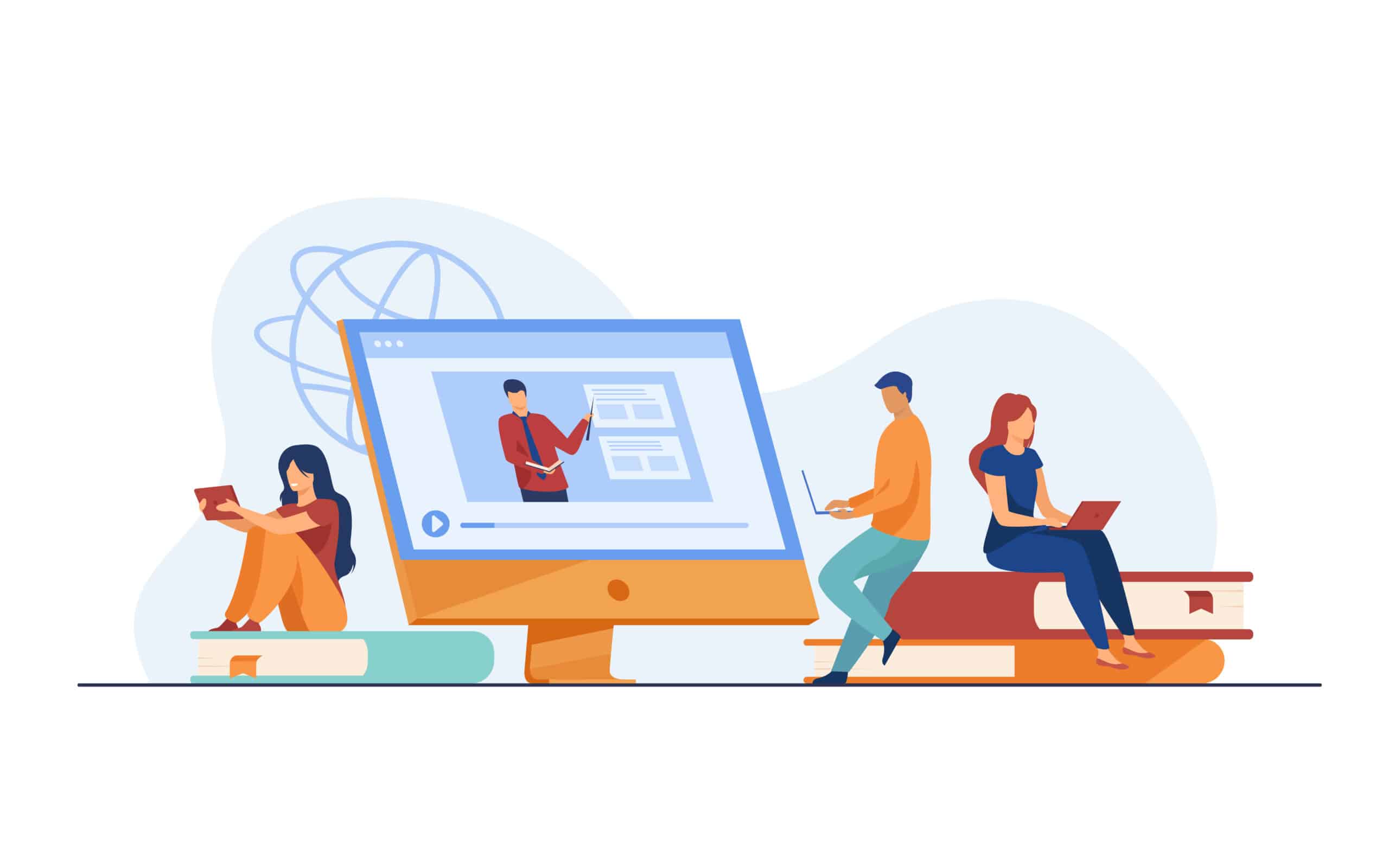Examining the Pros and Cons of Online University Education
If someone told you several years ago that they were studying for their degree without ever setting foot on a campus, you may have thought they were joking. However, with the advent of online university education, learning from anywhere with an internet connection has never been so accessible. Online distance learning has been in existence for quite some time now, but the proliferation of the internet, the prevalence of high-speed connectivity, and the widespread use of smartphones and other devices have now made it possible for students worldwide to learn at their own pace and location.
This, of course, has brought significant advantages that go beyond convenience. But you know what they say, every rose has its thorn. In this post, we will examine the pros and cons of online university education to better understand its impact on students in today’s digital age. We want to help you make an informed decision on whether you should pack up those textbooks and head to campus or stay online in your pajamas.
So, buckle up, and let’s dive in!

Pros
Flexibility
This is undoubtedly one of the most significant advantages of online university education. Traditional education systems require students to negotiate a rigid timetable, often forcing them to attend lectures and seminars at set times that can clash with other commitments such as work, family, or personal engagements. With online learning, that is not the case. It enables students to access course content and complete assignments from anywhere at any time, allowing for greater flexibility in their schedules.
Online learning allows students with an internet connection to access their course materials and complete assignments from anywhere at any time, providing flexibility for those with work, family, or other responsibilities. This level of flexibility as an advantage of online university education makes academic pursuit more accessible and inclusive for a broader range of learners, enhancing the educational experience significantly.
Accessibility
Since students do not need to be physically present in a classroom/lecture hall, online learning is not limited by geographic boundaries, location, or personal circumstances which means students can learn from anywhere in the world. Online education provides students with recorded lectures, online resources, and asynchronous communication methods, allowing them to review materials as much as needed and better understand challenging concepts.
This setup accommodates all individuals irrespective of their physical location, disability, or family responsibilities allowing more individuals to access education, providing greater opportunities for lifelong learning and skill development.
Cost Savings
Education can be expensive. Students often face financial challenges ranging from tuition fees and textbooks to housing, transportation costs, and other expenses. However, online learning’s virtual nature means that many of these expenses are relatively non-existent, providing substantial savings and a cost-effective solution for students.
In addition to online courses often having lower tuition fees, students don’t have to spend on campus housing or living expenses like commuting costs and parking fees. Furthermore, online students can access a range of digital resources such as e-books, videos, and learning management systems without additional costs that come with purchasing textbooks, increasing overall savings.
Self-Paced Learning/Personalized Learning Experience
With traditional classroom education, the pace of the course is set by the teacher, and the student has to adjust accordingly. However, online education flips the script and allows learners to take control of their pace of learning. Online learning allows students to study from their own preferred environment, which they can modify to suit their individual learning styles in ways that may not be possible in traditional learning environments.
With online learning, students can progress through course materials at their own pace, taking the time they need to review and understand the content. This allows students to move through course materials faster if they’re comfortable with the concepts or slow down if they’re struggling with particular areas. Self-paced learning creates a more enjoyable and productive learning experience, helping students to retain information more effectively while developing targeted skills and competencies to prepare them better for their professional future.
Greater Interaction and Collaboration
While online university education offers flexibility and self-paced learning options, it does not necessarily mean that students are left to fend for themselves. In fact, online learning offers an excellent platform for greater interaction and collaboration with peers and instructors. Unlike face-to-face courses where students may feel intimidated or uncomfortable sharing their thoughts and ideas, online programs often include interactive tools such as chat rooms, discussion forums, and video conferencing where students can easily communicate with professors and classmates from all over the world.
This opportunity for interaction and collaboration is especially beneficial for students who may struggle with traditional classroom participation, such as those who are shy or introverted. Online learning also attracts students from different parts of the world with different cultures. And so, through online education, students can connect and communicate with people from different backgrounds and cultures, facilitating cross-cultural understanding and knowledge providing opportunities for diverse online (international) collaborations and networking.

Cons
Limited Social Interaction
Social interaction is an essential aspect of growth and development, which can help build connections and create a sense of community. One of the drawbacks of online learning is that online students may miss out on the social benefits of in-person interaction with classmates that traditional on-campus programs offer, such as making friends with similar interests, joining clubs, and participating in extracurricular activities. Digital platforms like videoconferencing and discussion boards help, but they may not match the same level of interpersonal relationship development that traditional classrooms offer. Students may therefore have limited opportunities to work on communication skills such as public speaking, group presentations, or debates, which are critical in the professional world.
Without real-life socialization, students may develop a feeling of detachment towards their academic program, reducing their chances of seeing it through to completion. Online students can end up feeling isolated, leading to depression, stress, and anxiety. Though the distance learning provided by online programs is convenient, it presents the potential disadvantage of social disconnection and affects the holistic development of the student, particularly in learning valuable soft skills.
Technical Issues
Online learning relies heavily on technology, meaning that students must have access to reliable devices and dependable internet connectivity to participate fully. Technical issues such as internet connectivity problems, device malfunctions, and software errors can impede access to course materials which can affect the online learning experience and lead to frustration. Poor connectivity or disruptions during virtual classes can also cause lost or missed information, leading to disengagement from the course material.
Unfortunately, most of the time, students must manage and troubleshoot the technical issues on their own. These difficulties can cause delays in submitting assignments or taking online exams, and due to the limited interaction involved in online programs, troubleshooting technical issues can be considerably more frustrating, time-consuming, and impersonal. Additionally, unanticipated technological problems can derail students’ learning momentum and disrupt their coursework, ultimately impeding their academic progress.
Need For Self-Discipline
Online university education is an excellent opportunity for students to personalize their learning, but it also requires a great deal of self-discipline. While flexibility may be a positive aspect of online university education, it can be a disadvantage for students who lack the discipline to prioritize their studies amid other responsibilities. In traditional classrooms, students are expected to show up on time, be present for lectures, and stay for the full duration of the class. However, in the case of online learning, it is left to students to determine how and when they will complete their coursework.
Without the structure of on-campus classes, students can easily be sidetracked by other commitments or distracted by social media, online streaming, and other digital diversions. Additionally, the lack of immediate feedback and accountability can also lead to a lack of motivation in completing coursework. Students must possess strong self-discipline, time management skills and resist procrastination to succeed in online university education. While this style of learning is a great opportunity for independent learners, it is not suitable for everyone. Time management, self-motivation, and discipline when working independently are essential attributes necessary for academic success in online learning environments.
Limited Hands-On Experience & Limited Access to Resources
Another disadvantage of online university education is the limited hands-on experience that students can gain in their chosen field of study. For certain fields, such as sciences, engineering, and medical programs, online learning may not offer the opportunity for hands-on experience working with equipment and enhancing practical skills. These courses that require hands-on practical learning and laboratory experiments may be quite challenging to complete online.
This lack of hands-on experience can leave students ill-prepared for the job market, generating a sense of uncertainty about their competencies and abilities. Students studying online may also have limited access to university resources such as libraries, laboratories, research facilities, academic support services, or even career development resources, all of which are typically available in traditional campus settings. They may also miss out on internships or placements, which expose them to real-world scenarios and provide critical insights into career-related issues.
Lack of Structure
A major disadvantage of online university education is the lack of structure. Online learning courses do not provide the structure and routine that traditional campus-based courses often offer, leading to a more challenging time keeping pace with coursework and deadlines. Without predefined on-campus class timings and schedules, online students may face hurdles in setting schedules and adhering to them, often leading to procrastination and missed deadlines. The absence of a structured learning environment can make it harder for students to understand the course outline, follow the coursework, and master the course content.
Online university programs offer extensive resources, but students who need help will have to seek it out themselves, which could be problematic for those who struggle with self-motivation or time management. Additionally, feedback from professors may be limited to online communication, and students may not have access to direct and instantaneous feedback, leading to misunderstandings. Finally, online courses may offer fewer mechanisms for preventing cheating compared to traditional courses. So, despite the many benefits of online education, its lack of structure is a significant disadvantage that students must overcome to succeed in their educational pursuits.

Conclusion
Online university education offers a plethora of advantages that make it a compelling option for many students. However, online learning is not without its challenges. But despite these challenges, there are potential solutions. For example, online courses can incorporate live video sessions or discussion forums to increase interaction between students and professors. Time management and study skills workshops can also be incorporated into the curriculum to help students develop the skills they need to succeed in an online learning environment. As for technical issues, universities can provide technical support to students and make sure they have access to the necessary hardware and software.
But whatever your choice may be, know that online learning is a rapidly evolving field, and improvements are being made every day to bridge the gap between traditional and remote education. So, take some time to consider the advantages and disadvantages, and do proper research. Ultimately, this decision will depend on various factors like individual circumstances, financial considerations, goals, and even learning preferences. However, it’s worth noting that learning is a lifelong journey, and online university education can be a great option to keep you engaged, curious, and growing in knowledge. Your education is a vital investment in your future, and the more informed you are, the better success you will achieve!








